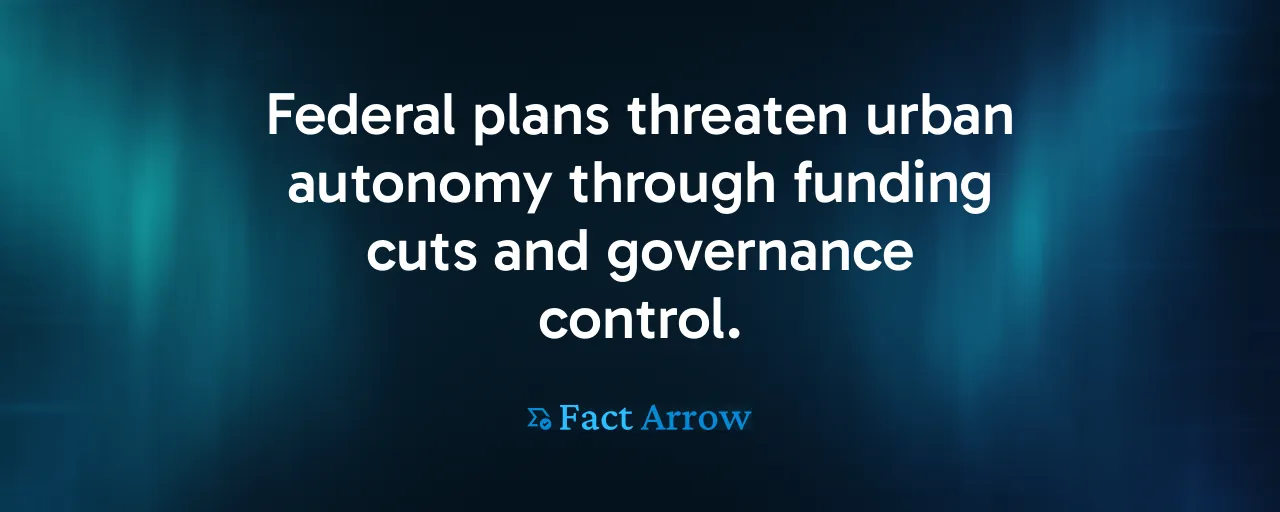A Bold Move Against Local Control
President Donald Trump has set his sights on reshaping the relationship between the federal government and major cities. His recent remarks about wielding 'tremendous power' to take over Washington, D.C.'s governance have sent shockwaves through urban centers. The plan, echoed in speeches and posts on Truth Social, hints at a broader strategy to curb the autonomy of cities like New York, Chicago, and Seattle, which rely heavily on federal funds.
The idea is not new, but its revival in 2025 feels urgent. Trump's comments suggest a vision where the White House could override elected local leaders, particularly in places with policies he dislikes. For residents of D.C., a city of 700,000 without voting representation in Congress, the threat feels personal. They've governed themselves under the 1973 Home Rule Act for nearly five decades, electing their own mayor and council. Now, that hard-won right hangs in the balance.
Why Cities Are on Edge
The stakes are high. New York City, for instance, depends on roughly $100 billion in annual federal grants to fund housing, education, and health care. A sudden cut could mean layoffs, shuttered programs, and a $7-10 billion shortfall, according to city estimates. In D.C., where tourism and real estate drive the economy, federal control could scare off $8 billion in planned investments. These numbers directly impact rent assistance, school lunches, and hospital beds for millions.
Beyond economics, the push raises deeper concerns about democracy. D.C. residents pay federal taxes but lack a voting voice in Congress. Taking away their ability to elect local leaders would echo the old grievance of taxation without representation. Other cities fear a domino effect, where federal pressure forces them to abandon policies on immigration, reproductive health, or environmental protections to secure funding.
A Pattern of Federal Overreach
This isn't the first time such ideas have surfaced. In 2020, Trump issued a memo targeting 'anarchist jurisdictions,' aiming to defund cities with progressive policies. Courts quickly blocked it, citing violations of the Tenth Amendment, which protects states and localities from federal overreach. Academic studies back this up, showing that heavy-handed federal conditions on grants often fail in court when they're deemed coercive.
History offers context. The 1790 Residence Act gave Congress control over the capital, but the 1973 Home Rule Act shifted most powers to D.C.'s elected officials. Even during the 1995-2001 D.C. Financial Control Board, local democracy wasn't fully dismantled. Trump's current plan, which could involve suspending Home Rule or appointing a federal overseer, would mark a sharp departure from that precedent.
The Human Cost of Funding Cuts
If federal funds dry up, the impact will hit hardest on those already struggling. In New York, $9.6 billion in operating grants support programs like SNAP, Medicaid, and public housing. Losing even a fraction could force cuts to services that keep families afloat. Research shows that slashing urban budgets often deepens racial disparities, as low-income and minority communities rely most on these programs.
In D.C., federal policing could strain trust between residents and law enforcement. Community relations, already fragile in some neighborhoods, might fray further under outsiders who don't answer to local voters. Civil liberties groups are already preparing lawsuits, arguing that such moves violate constitutional protections and the Impoundment Control Act, which limits the president's ability to withhold funds.
Fighting Back With Law and Unity
Cities aren't standing still. New York and D.C. officials are exploring ways to diversify revenue, reducing reliance on federal dollars. Legal teams are ready to challenge any overreach in court, drawing on precedents like the 2020 'anarchist jurisdictions' ruling. Voting rights advocates are pushing for D.C. statehood, a long-sought goal that would grant residents full representation and shield them from federal takeovers.
There's also talk of compromise. Some experts suggest 'city performance compacts,' where federal funds tie to agreed-upon goals like crime reduction, without gutting local control. Such deals could preserve autonomy while addressing concerns about safety. For now, cities are banding together, sharing strategies to protect their residents and their right to self-govern.
A Call to Protect Democracy
Trump's plan to tighten federal grip on cities is a test of democratic resilience. It challenges the principle that local communities should shape their own futures. From D.C.'s neighborhoods to New York's boroughs, people are rallying to defend their voice, their services, and their stability.
The road ahead requires action: lawsuits to block overreach, campaigns for statehood, and new revenue streams to weather potential cuts. It also demands solidarity among cities facing similar threats. If history is any guide, courts and public pressure can curb federal excess, but only if communities stay vigilant.
For now, the fight focuses on ensuring that every resident, from D.C. to Seattle, has a say in the decisions that shape their lives, a principle rooted in fairness and self-determination worth defending.
